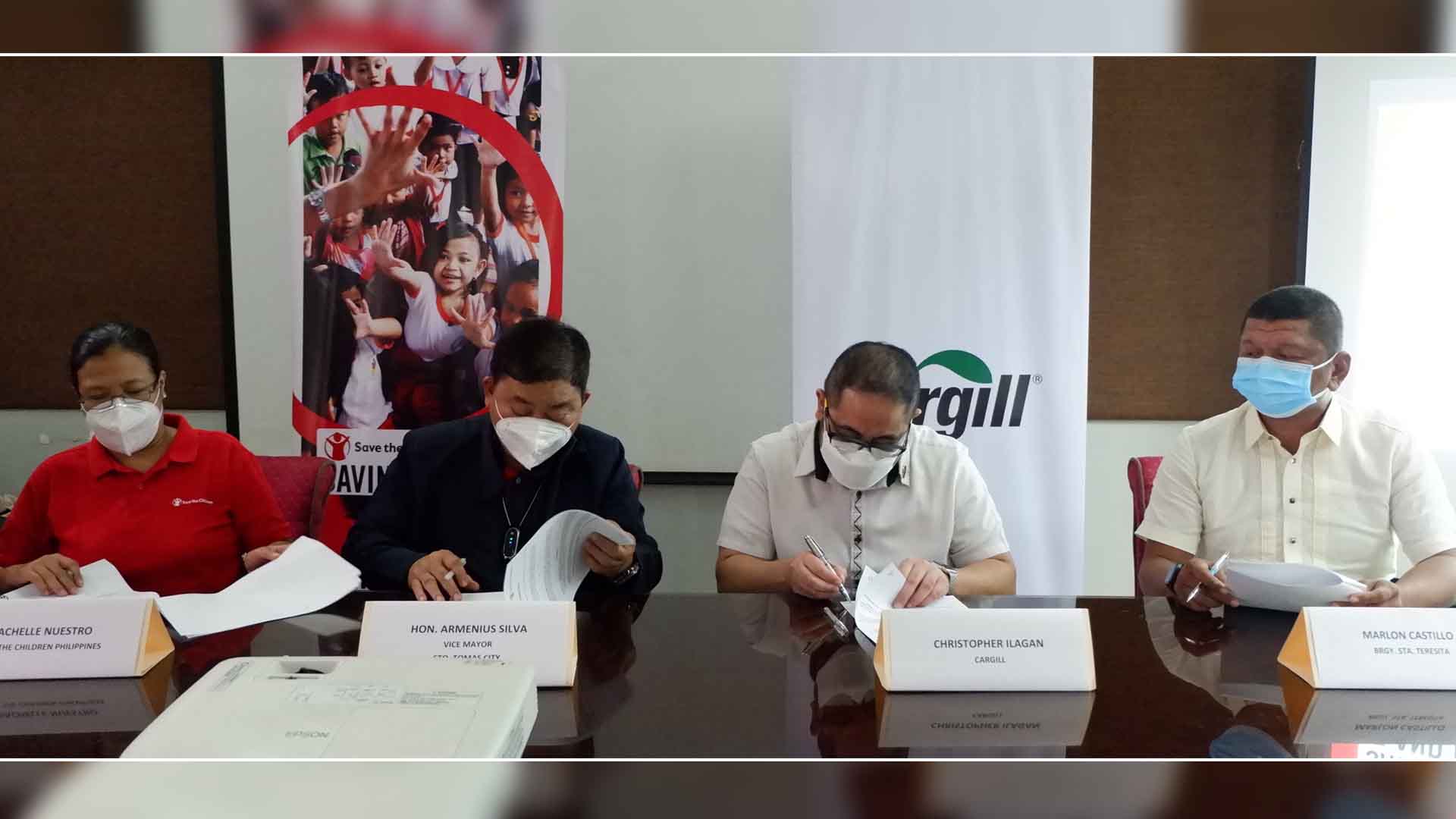In celebration of World Food Day this October, Cargill Philippines joins forces with Save the Children Philippines to launch a comprehensive program that will provide access to improved health and nutrition services, livelihood, and interventions to support the needs of thousands of Filipino children and their families, and the recovery of communities from socio-economic setbacks caused by the COVID-19 pandemic and other natural disasters.
With an estimated 5.7 million children under five on the brink of starvation across the globe, the world is facing the biggest global hunger crisis of the 21st century. The Philippines ranks 9th in the world with the highest stunting prevalence where 1 in 3 Filipino children in the age group of 0-5 is stunted for their age. This serious condition could be irreversible after two years, unless treated.
Meanwhile, national statistics also revealed that 4.2 million Filipino families are experiencing hunger with 16.8% coming from lack of food as one of the results of the COVID-19 restrictions which also raised numerous problems in the economy and have thrown many out of work.
In response to this, Cargill Philippines in partnership with Save the Children, introduced three innovative projects to benefit children and communities in Batangas, Bulacan, and Cagayan Province in the next three years.
“Cargill Philippines is deeply committed to building sustainable food supply chains in our local communities and creating meaningful environmental, social, and economic impacts. Driving greater focus on our sustainability initiatives allows us to contribute towards enriching farming communities and providing them with improved access to nutrition and livelihood,” said Sonny Catacutan, President of Cargill Philippines and Managing Director of Cargill Animal Nutrition and Health Philippines.
A hybrid ceremonial partnership launch was held in Batangas which was attended in limited capacity by officials from Cargill Philippines and Save the Children Philippines, together with key stakeholders, including Sto. Tomas, Batangas Vice- Mayor Armenius Silva.
“These projects will go a long way in promoting agriculture while ensuring welfare of our children in the city of Sto. Tomas. You have our full support in sustaining this project and you can rely that we will be your ally in our common goal for food security,” said Silva.
“We commend Cargill Philippines’ unwavering support and commitment with Save the Children to uphold the rights of children and give them a better future, through the different projects that are embodied in this meaningful partnership,” said Atty. Alberto Muyot, Chief Executive Officer of Save the Children Philippines.
The Household Economy and Nutrition Security or HENS Project will capacitate and scale up the livelihood of 300 backyard poultry farmers in Batangas and Bulacan by providing training along with initial layer hens and other inputs to establish a small-scale table egg production operation that can support household nutritional needs, as well as boost household incomes. The project also benefits more than 10,000 community members through the nutrition awareness-raising activities.
Through the All Children SHINE (School Health and Integrated Nutrition Education) Project, some 5,000 children in 25 public schools in Santo Tomas, Batangas, will have access to quality school-based nutrition services, nutrition-supportive physical environment, and improved health and nutrition learning opportunities.
Meanwhile, the most vulnerable farmers and their families in Cagayan Province will have the chance to recover from the impact of Typhoon Ulysses courtesy of the Yellow Corn Project which is an inclusive business project that provides training on good agricultural practices, farming inputs and post-harvest support, while integrating farmers directly into the animal feed value chain. 430 farmer families are expected to benefit from this project together with their school children who were given school supplies and kits.
“Our partnership with Save the Children allows us to increase our scale and reach in transforming the lives of farmers and their families more swiftly and effectively,” said Catacutan.
“By combining our normative, operational, and advocacy role, we can ensure that the most vulnerable grow up healthy and nourished as we address the root causes of hunger, fight the threats to children’s health and survival, and Save the Children from Hunger,” Muyot said.





















